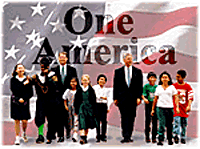 |
 |
As part of its mission to serve the City of Lynn's immigrant population, the Community Minority Cultural Center (CMCC) undertook a $2.1 million renovation project to construct a community center. The center houses a gallery, classrooms, meeting spaces, a computer lab, a resource center and multiple community organizations. As CMCC was finishing this project in 1997, the Lynn Police Department proposed that CMCC work with diverse youth as a means of crime prevention. CMCC formed a partnership with the police department and together they took full advantage of the new facility and created an after school education program for fifth to eighth graders called the CMCC After School Education Program (CASE). This program responded to a great concern about the presence of gang activity among the city's young people. CASE seeks to educate youth and to provide them with the opportunity to develop positive relationships with police officers.
CASE engages police officers in teaching computer and math classes and in tutoring and mentoring students. The program runs the length of the school year. One of the most integral parts of the program is the CASE Lecture Series. Once or twice a week, officers bring in videos, make presentations, and hold discussion groups related to drugs, health, sports, violence, gangs and life skills. The lectures not only promote dialogue among the diverse youth, they also promote respect and relationships between youth and police officers. This experience gives the officers an opportunity to respond to the needs of the young people in a more informed way. During their presentations, the officers model the values they are teaching through the way that they carry themselves, their presence and how they respond to the youth's behaviors. The officers provide the youth options with regard to how they face and cope with the situations they encounter as they grow up. CASE serves 64 young people: 48 percent are Asian, 25 percent are Hispanic, 19 percent are black and 8 percent are white.
Outcomes and Significant Accomplishments The officers and the youth involved in CASE have gotten to know each other through experiences unrelated to criminal activities, and have learned to see each other as people. As a result of the CASE program and the CASE lectures, several young people in the program have stopped wearing gang colors. In the fall of 1998, CASE will begin its second year and will incorporate conflict resolution skills, cultural arts and a community service component into its structure.
|
![]()
To comment on this service,
send feedback to the Web Development Team.
![[White House icon]](/New/images/home_pin.gif)
![[Help Desk icon]](/New/images/help_pin.gif)